Eurovision 2022: All you need to know about the competition
- Published
- comments
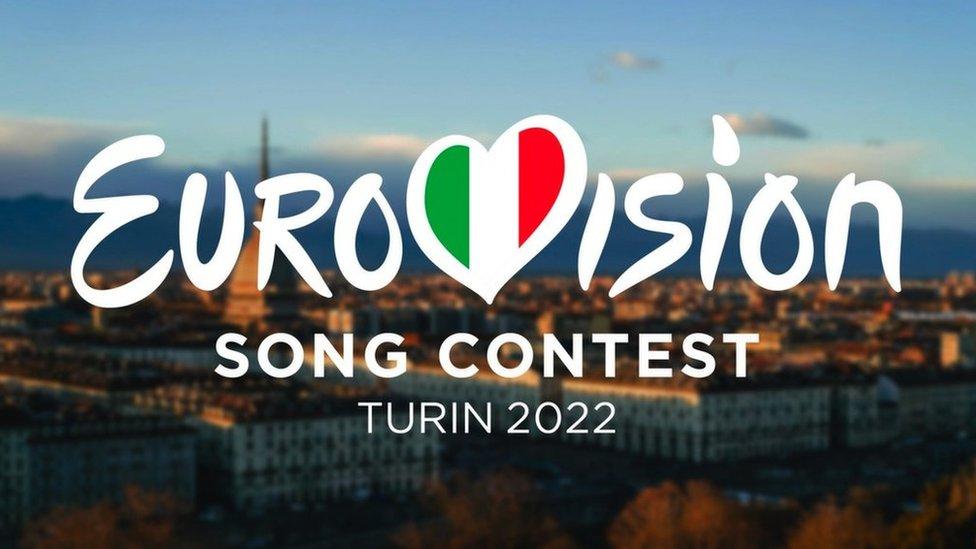
The competition is taking place in Italy this year after Maneskin won in 2021
It's Eurovision time again! All 25 acts have now been confirmed for the grand final on Saturday 14 May.
This year, the show is being hosted by Turin in Italy, after the Italian band Måneskin won the competition in 2021.
This is the first time Eurovision has been held in Italy in more than 30 years.
Keep reading to find out how the competition works and who are the favourites to win.
Will you be watching Eurovision? Who are you supporting? Let us know in the comments!
How does the competition work?
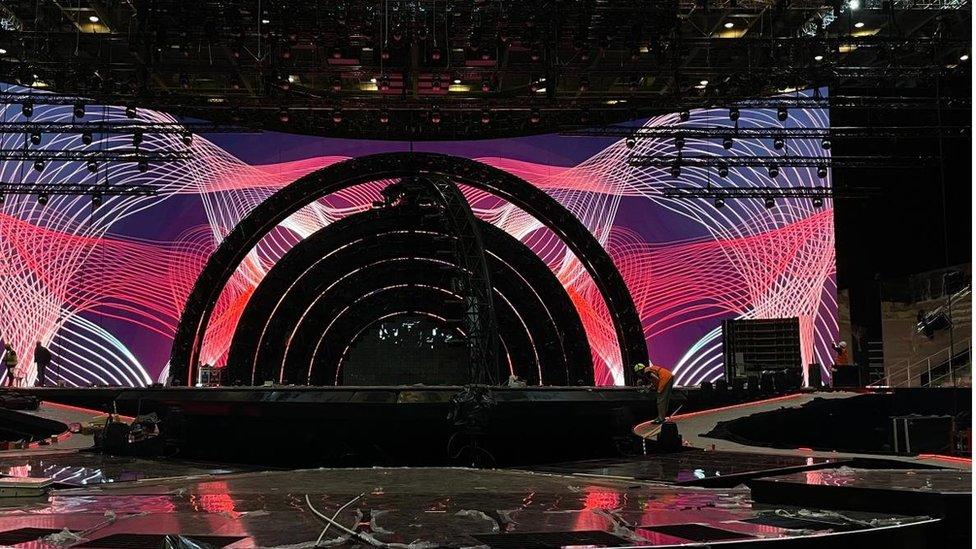
The PalaOlimpico is the largest indoor arena in Italy and was built in 2005 in advance to host the Ice Hockey during the 2006 Winter Olympics
On Tuesday 10 May, 17 countries took part in the first semi-final.
The 10 acts to progress to Saturday's final were Switzerland, Armenia, Iceland, Lithuania, Portugal, Norway, Greece, Ukraine, Moldova and the Netherlands.
On Thursday 12 May, another 18 acts took to the stage for the second semi-final.
Belgium, Czech Republic, Azerbaijan, Poland, Finland, Estonia, Australia, Sweden, Romania and Serbia all made it through to the big final.
It was a disappointing night for Ireland - who have won a record seven times - as they didn't make the final.
In fact since the introduction of the semis in 2004 Ireland has failed to reach the final on nine occasions. The last time the country finished in the top 10 was 2011.
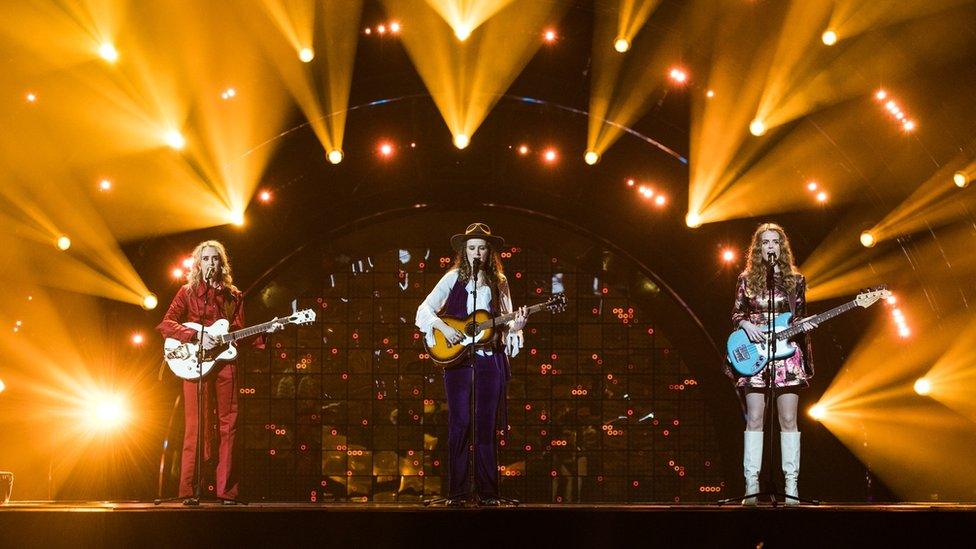
Sibling trio Systur qualified for the final for Iceland after Tuesday's semi
One name we won't be seeing is Russia, after it was banned following the invasion of Ukraine earlier this year. People living in Russia will also be unable to vote for any of the entries.
Israel also won't be seen performing at Italy's PalaOlimpico arena after the country said their entrant, Michael Ben David, will not travel due to a Ministry of Foreign Affairs strike. He may instead perform his act remotely.
The 20 qualifying semi-finalists will be joined by the big five countries - France, Italy, Germany, Spain and UK - in the grand final on Saturday, who don't have to go through the qualifying stages of the competition.
This is because these countries pay the most money to the European Broadcasting Union (EBU), which organises the annual contest.
Who will win?
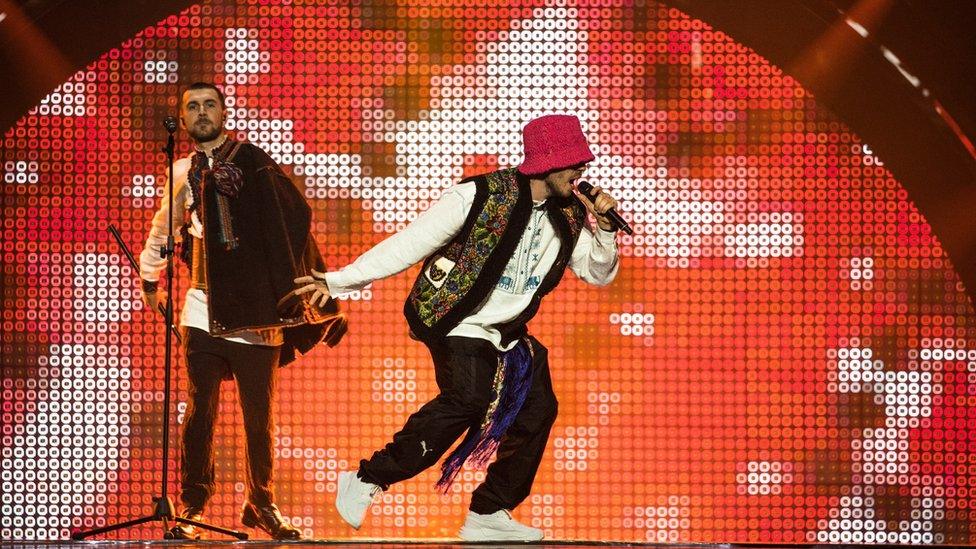
Kalush Orchestra were given special permission to leave Ukraine while the war continues
Ukraine are the firm favourites to win this year.
Their act is Kalush Orchestra, who will be performing a song called Stefania, which has become an anthem in their home country.
Since the war started there, men aged between 18 and 60 haven't been allowed to leave the country.
But the six-person band has been given special permission to travel to Eurovision to perform, although one band member is staying in Ukraine to fight.
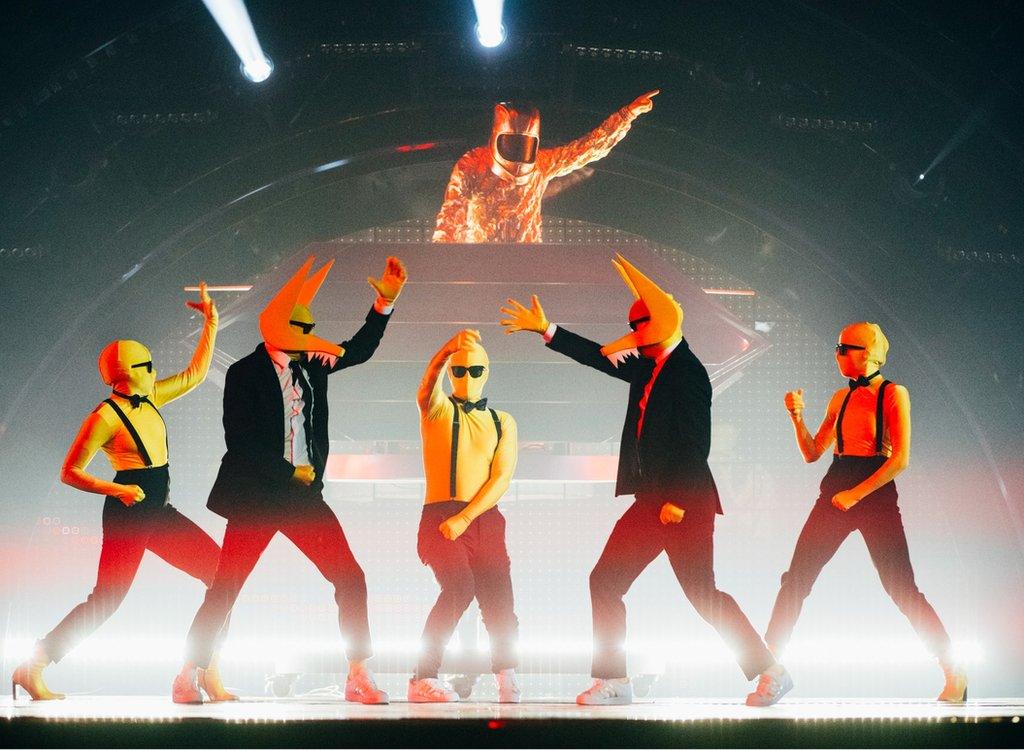
Subwoolfer's banana-based song has built a popular following
Another favourite is Sweden, who will be sending singer Cornelia Jakobs with her song, Hold Me Closer.
But perhaps the best reaction in the arena at Tuesday's semi-final went to Norway's Subwoolfer.
The group, who say they were formed "4.5 billion years ago on the moon", performed their song Give That Wolf A Banana, which brought a much-needed dose of Eurovision silliness.
Two more countries to keep an eye on are Italy and Spain, but fans think the competition could be anyone's game.
Who is representing the United Kingdom?
WATCH: Sam Ryder says TikTok has helped him launch a solo career (Courtesy of Radio 1 Newsbeat, Feb 2021)
Sam Ryder will be representing the UK in the contest with his song Space Man.
Many people think he will help the UK achieve a much better result than it has in recent years.
The TikTok star's song is already popular and the UK is currently the second favourite to win.
British fans hope that Sam does better than last year, where the UK finished in last place with no points.
Where can I watch it?
The semi-finals will be broadcast on BBC Three and on BBC iPlayer.
The Grand Final on Saturday 14 May will start at 8pm on BBC One and BBC iPlayer.
- Published11 March 2022
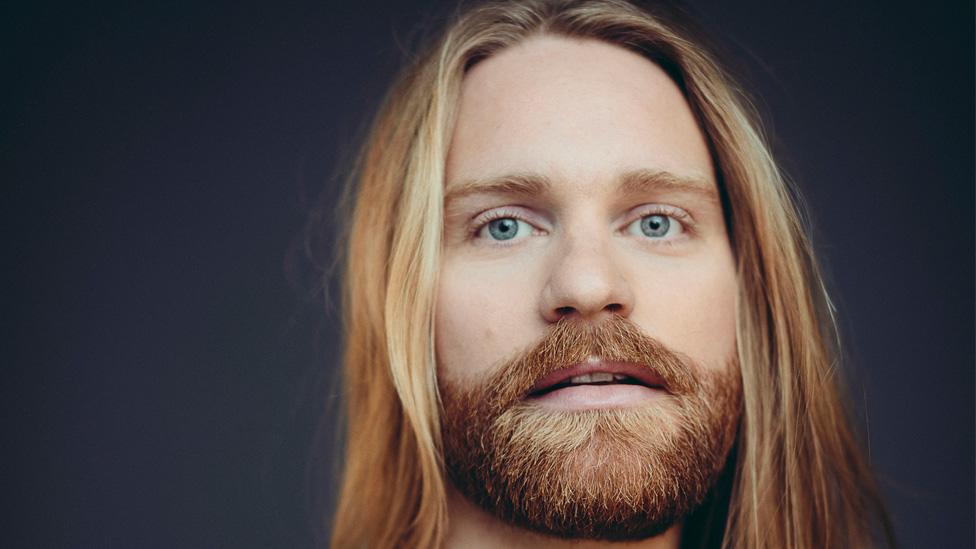
- Published23 May 2021
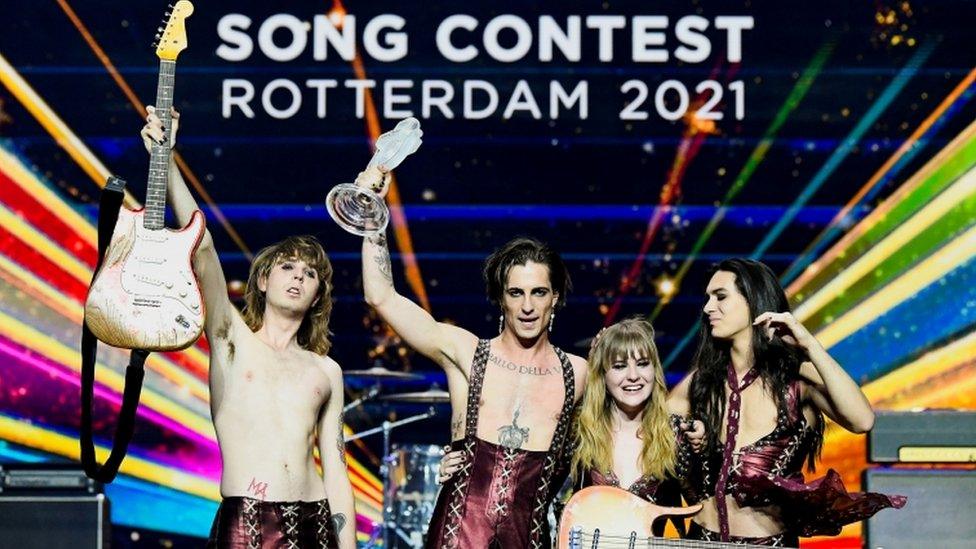
- Published11 May 2018

